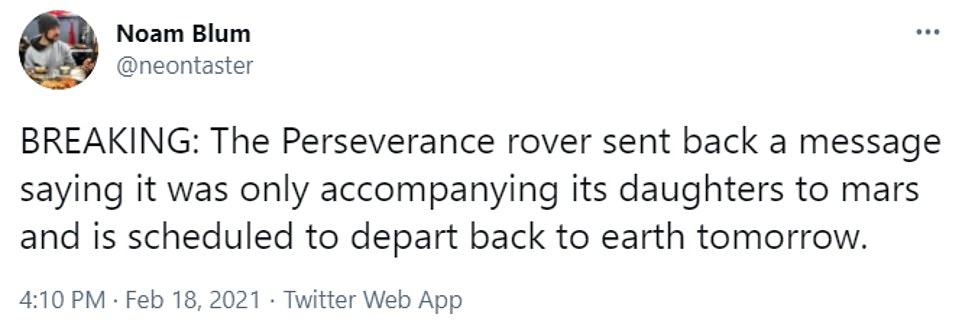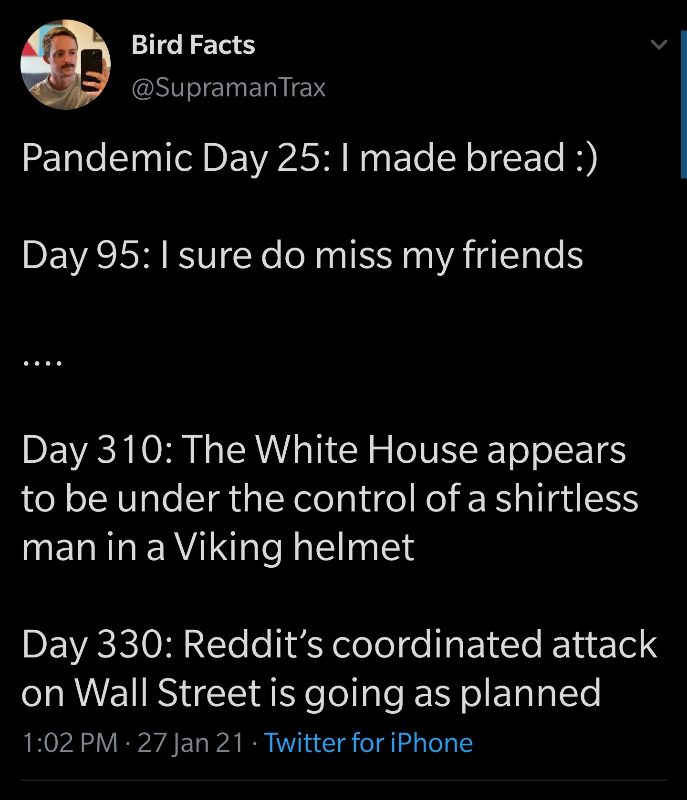1. Good Monday Morning
It’s March 1st. Johnson & Johnson’s COVID-19 vaccine will be available at some sites beginning as early as tomorrow–a new weapon to fight the coronavirus. If you haven’t been vaccinated yet, here is a handy tool published by the CDC showing where you can get vaccinated free in your area.
Today’s Spotlight is 1,406 words — about a 5 minute read.
2. News To Know Now
a) “I want a declaration from Google on what information they’re collecting on users to the court’s website, and what that’s used for,” Judge Lucy Koh told the company’s lawyers last week according to Bloomberg.
Judge Koh also expressed dismay about users being tracked in “incognito mode,” which is unfortunate. Spotlight readers know that any browser’s incognito mode means only that the information isn’t saved on YOUR device. It does not block your internet provider, the browser company, or the software of sites you visit. Incognito mode is not now nor has it even been private.
b) People with speech disabilities may soon find it easier to use voice assistants like Alexa, Siri, and Google Home.A Wall Street Journal report states that the companies are working with specialized companies to build databases of atypical speech and train their products on those speech patterns.
c) A court in California has ruled that the state’s net neutrality law can become effective. The ruling follows the Biden administration’s Department of Justice informing the court that it no longer supports the Trump administration’s position. (Washington Post)
Net neutrality refresher: Businesses can’t speed up, slow down, or block content because of commercial arrangements.
3. COVID-19 Tech News
Great Trackers
Overview — Johns Hopkins
Community Mobility — Google
Vaccine Distribution — Washington Post
Vaccine Finder – CDC Project
Risk Calculator — Brown
New York Times tracker that allows you to customize a daily email with multiple cities and towns that you’re monitoring: Click here to configure.
Coronavirus & Tech News
Chicago Thinks Zocdoc Can Help Its Vaccine Chaos – MIT Tech Review
Millions of COVID-19 Test Results in India Leaked – Bleeping Computer
Spotify Joins Salesforce in Adopting Work From Anywhere – Quartz
The 27 Year Old COVID-19 Data Superstar – Bloomberg
Want to Buy A Mask Online? Forget About That N95 – New York Times
4. Search Engine News
We often write about the predator-prey relationship between Google and marketers. Our perfect information view: if the rules were known to all, the best content would rise to the top. Google … does not agree.
We saw a great example of this last week when Google exec John Mueller stated that the company doesn’t make a practice of saying when it no longer uses a ranking signal. Google’s position that all organizations should simply create the best content they can and let the chips fall where they may was obsolete twenty years ago when search optimization began, and is even more outdated today.
Google also said this week that while links from others sites are important that the total number of links is irrelevant. That’s something we know from extensive testing. A link from a site like Wikipedia or a news organization is worth exponentially more in terms of ranking signals than a link from a local business. Counting links hasn’t been a valid strategy in years.
This level of control is crucial to Google’s future plans as it becomes a third party insulating users from organizations. The most recent example is the convenient way Google now allows people using its Google Maps application to pay directly for their parking. ZD Net explains, “After finding a location, users enter the meter number, the time desired for parking, and then tap Pay.”
That’s convenient for everyone until Google insists on a tiny convenience fee. There are four to five million parking meters in the U.S. Managing their cashless transactions is a nice side business.
The service is now available for Android phone users (coming soon to iOS) in 400 cities.
5. In The Spotlight — Safe Surfing Roundup
There are enough specific problems inhibiting safe surfing that we’re doing another Safe Surfing Roundup.
Identity Theft
- The FTC received 1.4 million reports of identity theft in 2020, double the number reported two years ago. (Dark Reading)
- Stop showing your vaccine card on social media, the BBB warns. Fake vaccination cards are appearing for sale on eBay and TikTok. Also, you really don’t need to be sharing your full name and birth date to be scraped.
Hacks and Browser Issues
- Google Chrome had three serious issues that were repaired during February. If you’ve stopped your browser’s automatic updates, you can update manually following these instructions.
- China is also implicated with Russia in the Solar Winds hack and other tools were affected. The startling number via Ars Technica: 30% of organizations compromised in the Solar Winds hack don’t use Solar Winds. They got hit from other tools it infected.
Consumer Products
- Apple is reminding consumers that its iPhone 12 lineup can interfere with medical devices like pacemakers and MagSafe charge products. (Gizmodo)
- Tesla is recalling more than 130,000 of its Model S and Model X cars over failing touch screen displays. The recall agency reported that Tesla confirmed “that all units will inevitably fail given the memory device’s finite storage capacity.” (Automotive News)
- A UK consumer organization published a fascinating report on fake Amazon reviews for sale and how businesses are avoiding online checks. Packages for sale include 50 fake reviews for $10-$20 each.
Social Media Challenges
- Thousands of videos uploaded to YouTube five years ago during the viral “Mannequin Challenge” have been used by AI researchers to train neural networks on visualization. The videos were easily downloaded and used because they were put online. You can’t revoke that permission. It’s out there once you type or upload. (MIT Tech Review)
- The Red Silhouette challenge is something similar, but on TikTok. It involves posing naked or with minimal clothes with only a red light creating your silhouette. While some people felt empowered by participating, instructions soon were posted explaining how people could neutralize that red light and see the actual image. (BuzzFeed News)
6. Debunked — Fake Vaccine Ingredient Lists
Disinformation about COVID-19 vaccine ingredients continues swarming social media.
Reuters fact check with ingredient debunking here.
7. Following Up — Australian News
We told you last week about Facebook cutting off the sharing of any link from an Australian media company, A deal midweek between Facebook and the Australian government has restored the functionality.
NPR has one of the better overviews.
8. Protip — What Parents Should Know About Discord
This is the perfect topic for the safe surfing roundup. Lifehacker explains the basics that you need to know including how to restrict some functions.
9. Screening Room – Frida Mom
10. Science Fiction World — Robots
We wrote more than two years ago about the little Starship Technologies delivery robots that debuted on George Mason University’s campus. Since then they’ve branched out to other schools including UCLA and have made more than one million deliveries. The company notes that they have brought 100,000 bottles of milk and more than 60,000 pizzas to people.
We can all agree that robots are cool and helping us fight climate change, but there’s also news from Boston Dynamics that its new robotic dogs can now charge themselves. They’ve sold 400 units of the 4 legged robot that includes an arm that can carry things, turn handles and knobs, and pull levers.
Now some scary people who are trying to hustle dystopian times upon us have outfitted one of the robots dogs with a paintball gun. And they made that robot dog controllable from a smartphone. I’m sure that the world’s militaries have never fantasized about an armed robot.
You can see Spot hustle in humanity’s dark times here.
11. Coffee Break — My 8-year-old Hero
Mike Piccolo took to Twitter recently to brag on his 8-year-old niece who found a way to confound parents, teachers, and Zoom employees. After reading the story, I would like her on our side during the upcoming robot apocalypse.
You should read the hysterical story of how she got out of Zoom school.
12. Sign of the Times







